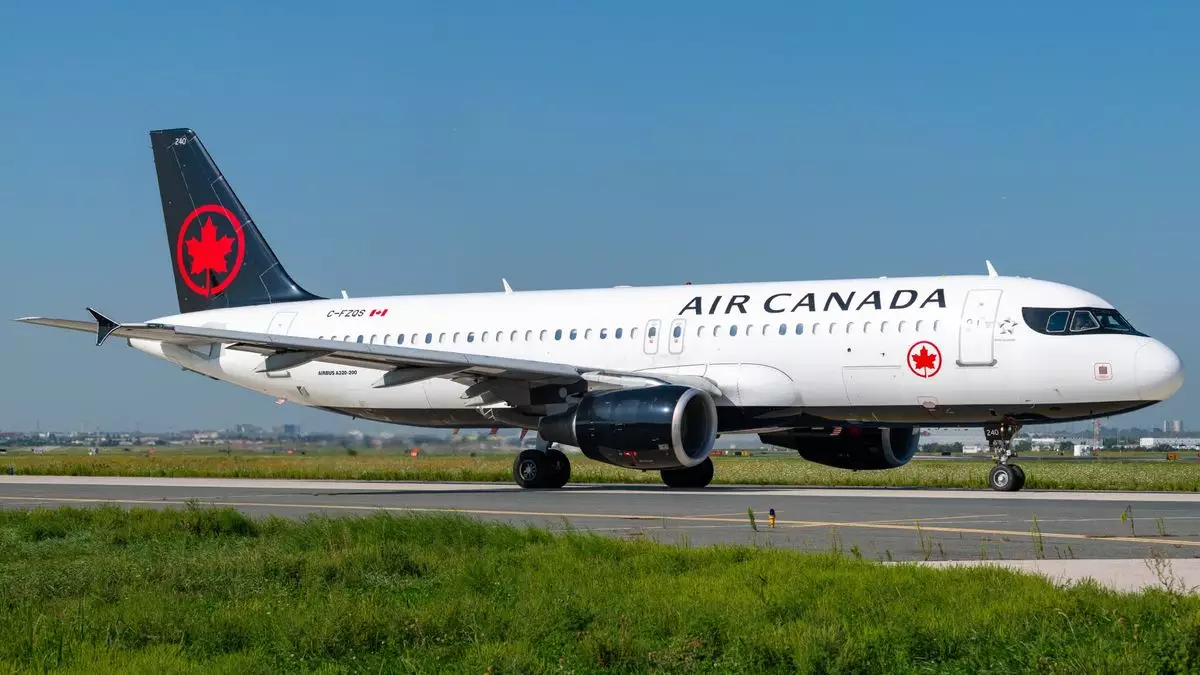Recent developments in the ongoing negotiations between Air Canada and the Air Line Pilots Association mark a substantial achievement for both parties. A tentative labor agreement, spanning four years, has been reached that not only recognizes the invaluable contributions of over 5,400 pilots working for Air Canada and its subsidiary, Air Canada Rouge, but also establishes a new foundation for the airline’s growth. This groundbreaking deal was announced by Air Canada early Sunday morning, and while it awaits ratification by union members and approval from the airline’s board, it symbolizes an important step towards preventing a potential airline shutdown, which would have far-reaching implications throughout the Canadian economy.
The agreement, although still confidential, is projected to generate an estimated $1.9 billion for pilots over the duration of the contract. The sum underscores the likelihood of improved compensation, particularly given that pilots have long sought pay that reflects their skills and competitiveness compared to their U.S. counterparts. Such negotiations have been ongoing for over a year, showcasing what an arduous journey it has been for both the airline and its pilots.
In a statement following the announcement, Canada’s Minister of Labour, Steven MacKinnon, praised the collaborative effort that led to the agreement. His commendation extended to both Air Canada and the union, highlighting the roles of federal mediators in facilitating dialogue and understanding. MacKinnon emphasized that negotiated agreements tend to be more beneficial for all parties involved—companies, workers, and by extension, consumers. This success is particularly notable considering the looming threat of a strike or lockout, which could have initiated a three-day wind-down plan and potentially left over 110,000 passengers daily without a means of transport. Previous warnings indicated that if negotiations fell through, the timeline for a full work stoppage could have begun as early as September 18.
The backstory of these negotiations features a backdrop of tensions, notably Air Canada’s consistent record profits alongside the union’s insistence that pilot wages remain below market rates. These conditions have sparked discontent among pilots who feel undervalued given the airline’s financial success. Despite the airline’s claim of commitment to negotiations, representatives have voiced concern over wage demands that were perceived as unsustainable. This tug-of-war was essentially resolved through relentless negotiation that required dedication and a united front from the pilots—an effort notably remarked upon by Charlene Hudy, the executive council’s chair.
The pilots’ determination was a catalyst for change, demonstrating the significance of union unity and consistent engagement. The hard-fought accord reflects not just a resolution to immediate financial disputes, but serves to reinforce the notion that collective bargaining can prevent setbacks in essential service sectors, particularly as the aviation industry continues to recover from the impacts of the pandemic.
Community and Economic Implications
While the threat of a labor disruption has been averted, the ramifications surrounding this negotiation extend beyond just labor satisfaction—they touch upon broader economic stability and community welfare. Both businesses and citizens had been anxious about the potential disruptions that a strike could cause. Various business groups, including the Canadian Chamber of Commerce, had pressured the government for intervention, advocating for binding arbitration to avoid economic fallout. The response from the federal government calls into question the responsibilities and roles of stakeholders in labor disputes, especially between large corporations and unions representing essential workers.
Looking ahead, the successful negotiation sets a precedent that could influence similar discussions in the future across various sectors. Stakeholders must recognize that constructive negotiations yield positive results, and actively engaging in dialogue can avert crises, ensuring that both companies and workers emerge strengthened.
The tentative agreement between Air Canada and its pilots is not merely a contract but a narrative of resilience, unity, and collaborative success that not only stabilizes the airline but also upholds the interests of the wider Canadian public. It serves as a reminder of the power of negotiation in the face of systemic upheaval and the enduring importance of solidarity among workers.

